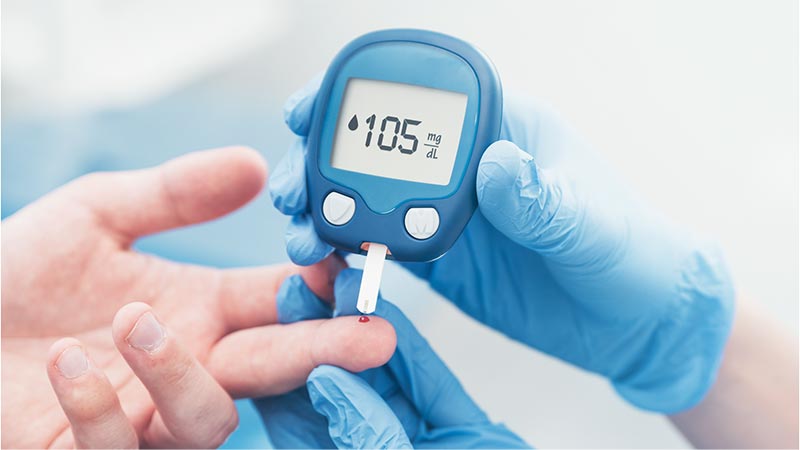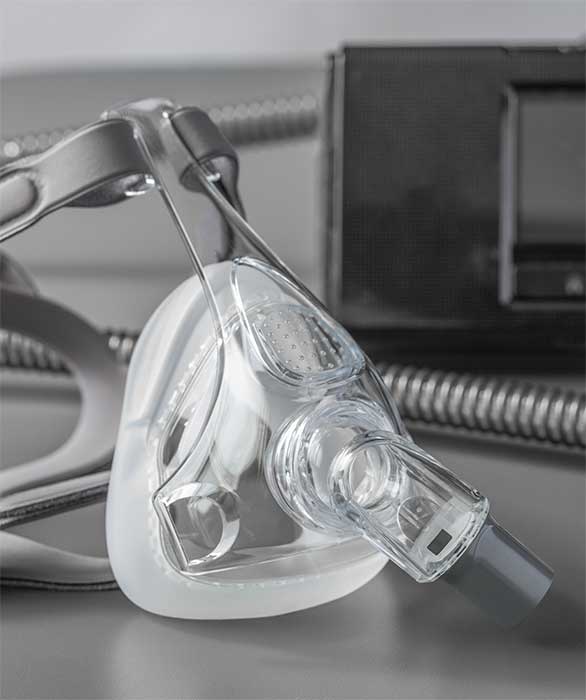
Clinical Training
Training For Support Workers
Clinical Training For Support Workers
KC Skills Centre clinical training courses set a new benchmark in Support Worker Training. You can choose from a wide program of clinical courses to build your skills, knowledge and understanding of a range of conditions so you can safely and confidently deliver the best possible care to clients with complex health requirements.

Practical Skills Experience
KC Skills Centre is passionate about delivering high-quality training that focuses on both the theoretical and practical aspects of care. Our training centre is equipped with a range of apparatus and medical mannequins, so you apply what you have learnt and build the skills and confidence to provide high intensity supports.

Personalised Instruction
Our expert instructors like to provide an individualised training experience, so class sizes are limited to a maximum of ten students. Smaller class sizes allow us to provide personalised instruction and feedback to achieve the best learning outcomes.

Current & Up To Date
All our courses are updated and validated every three months to ensure they reflect the latest government and ASQA (Australian Skills Quality Authority) guidelines. All courses meet or exceed the requirements of the NDIS Practice Standards Skills Descriptors and Aged Care Standards, so you can be assured of thorough and comprehensive training.
Clinical Training Courses
Medication Training For Support Workers
Bowel & Stoma Care for Support Workers
Diabetes and Glucagon Training for Support Workers
Catheter & Uridome Training for Support Workers
CPAP & BiPAP Training For Support Workers
Dysphagia Training For Support Workers
PEG Feeding Training For Support Workers
Airway Suctioning & Tracheostomy Training
Infection Control For Support Workers
Medication and Administration Training For Support Workers
Length of Course: 6 hours
Prerequisites: Personal care certificate, Cert 3 in individual support or equivalent
Cost: $140 + $27 Booking & Resources Fee / per person (group and offsite bookings please enquire here)
Course Introduction
The administration of medications to clients is often a necessary part of being a support worker. This course is designed to provide an introduction to common medications distributed by Home Support Workers and Enrolled Nurses and how to prepare, administer and assist patients with their medications safely.
Medication Training – Key Competences Covered
- How to read and understand a medication chart
- Introduction to basic medication terminology
- The seven rights of medication
- Understanding a Client’s needs for various medications
- How to differentiate between administration, prompting and self-administration
- Understanding policy and procedures for medications administration
- How to respond to a medication incident
- Identification and reporting of any issues or concerns
- Documentation escalation
- Practical elements – administration techniques and procedures
Medication Training Course Certification
A certificate of achievement is issued on completion of the course.
Bowel & Stoma Care for Support Workers
Length of Course: 6.5 hours
Prerequisites: None
Cost: $140 + $27 Booking & Resources Fee / per person (group and offsite bookings please enquire here)
Course Introduction
Assisting clients with their bowel care needs is a common requirement for Support Workers working with elderly or physically disabled clients. This course introduces the function of the gastrointestinal system, how to identify common bowel issues and assist clients with their bowel care needs. Stoma Care for colostomy clients requires unique training of the highest standards. In this course, you will learn how to care for various types of stomas and how to change and dress colostomy products. You’ll also get a good understanding of the medical conditions that require a stoma and how to support and assist clients living with a stoma and colostomy bag.
Bowel & Stoma Care Training – Key Competences Covered
- An introduction to the gastrointestinal system
- Understand a client’s need for bowel care
- Promotion of a healthy bowel
- Medications, implications, and interventions
- Bowel-related medical conditions, autonomic dysreflexia
- Documentation and escalations
- Policy and procedures and infection control
- Practical element- administration techniques and procedures, including- micro enema, medication chart and infection control
- Understanding different types of stomas
- How to manage and change a stoma
- Lifestyle and psychological factors
- Medical conditions that require a stoma
- Documentation and escalation
- Written exam component
- Practical- Emptying and changing a stoma bag, exposure to products and equipment.
Bowel & Stoma Care Training Course Certification
A certificate of achievement is issued on completion of the course.
Diabetes and Glucagon Training for Support Workers
Length of Course: 6.5 hours
Prerequisites: None
Cost: $160 + $27 Booking & Resources Fee / per person (group and offsite bookings please enquire here)
Course Introduction
Diabetes is one of the most common medical conditions that carers assist clients with, so having a good understanding of diabetes is a crucial part of your Support Worker training. This course educates students on how diabetes is diagnosed, its effects on the human body (internally and externally) and how to assist or administer medical treatments for clients. Glucagon is a medication which is used to treat Hypoglycaemia (low blood sugar/Glucose) in diabetics.
Diabetes and Glucagon Training – Key Competences Covered
- Understanding the origin and causes of diabetes
- The symptoms and types of diabetes
- How to Identify and Manage Symptoms
- Hyper/hypoglycemics and monitoring glucose levels
- Policies and procedures
- Medications and treatments
- Causes, risks and preventions
- Developing an understanding of Glucagon
- Signs and symptoms of Hypoglycaemia
- Differentiate between normal & abnormal side effects
- Evaluate and manage clients condition safely.
Diabetes and Glucagon Training Course Certification
A certificate of achievement is issued on completion of the course.
Catheter & Uridome Training for Support Worker
Length of Course: 6.5 hours
Prerequisites: None
Cost: $140 + $27 Booking & Resources Fee / per person (group and offsite bookings please enquire here)
Course Introduction
This hands-on course provides extensive training for Support Workers on using various catheter systems and the medical or physical conditions that require catheter use. This training will give you the necessary skills to administer catheter care to clients and understand the basics of the urinary system. Men can use urinary sheaths or Uridome (often called condom drainage) if they have urinary incontinence and don’t want to or can’t wear pads. They fit over the male genitals like a condom and are attached at the end to a drainage bag to collect and store the urine until it can be emptied.
Catheter & Uridome Training – Key Competences Covered
- An introduction to the urinary system
- Understanding the medical conditions that may require a urinary catheter
- How to manage and assist clients with a catheter
- Introduction to the different types of catheters
- Documentation, incident reporting and infection control
- Practical and written assessment, including emptying a catheter
- Male Urinary Tract System
- Conditions that may require a Uridome
- Preparing and applying a Uridome
- Complications
- Policies and procedures
- Changing, cleaning, and maintaining a Uridome
- Written Assessment- Quiz
- Practical- Applying Uridome and drainage equipment
Catheter & Uridome Training Course Certification
A certificate of achievement is issued on completion of the course.
Dysphagia Training For Support Workers
Length of Course: 3 hours
Prerequisites: None
Cost: $80 + $27 Booking & Resources Fee / per person (group and offsite bookings please enquire here)
Course Introduction
This is a helpful course for all carers and Support Workers but is essential for those caring for clients with Dementia. This training will teach you how and why the body can develop swallowing issues and how to prevent choking while assisting a client with eating.
Dysphagia Training – Key Competences Covered
- Understanding the gastrointestinal system.
- Medical conditions that may result in a dysphagia diagnosis
- Documentation and escalation
- Written assessment
- Practical assessment
- Malnutrition and management of swallowing & choking phaser
Dysphagia Training – Training Course Certification
A certificate of achievement is issued on completion of the course.
PEG Feeding Training For Support Workers
Length of Course: 3 hours
Prerequisites: None
Cost: $80 + $27 Booking & Resources Fee / per person (group and offsite bookings please enquire here)
Course Introduction
PEG feeding training is essential for all Support Workers caring for clients with enteral feeding needs. This course will give you a thorough understanding of how the PEG system works and how to safely use, maintain and care for the equipment and assist clients with PEG feeding requirements.
PEG Feeding Training – Key Competences Covered
- Understanding the gastrointestinal system
- Medical conditions that require PEG/enteral feeding
- How to identify equipment and parts required for enteral feeding
- Skin integrity assessments
- Documentation and escalation
- Practical assessment
- Written assessment
PEG Feeding Training Course Certification
A certificate of achievement is issued on completion of the course.

CPAP & BiPAP Training
Length of Course: 3 hours
Prerequisites: None
Cost: $80 + $27 Booking & Resources Fee / per person (group and offsite bookings please enquire here)
Course Introduction
Both CPAP and BiPAP can be used to treat sleep apnoea, depending on your specific needs. CPAP is most often used to treat obstructive sleep apnoea. 3 BiPAP is used to treat more severe cases of sleep apnoea, often in people with central sleep apnoea associated with other underlying health issues.
CPAP/BiPAP Care – Key Competences Covered
- Develop basic knowledge of the respiratory system
- Differentiate between BiPAP and CPAP
- Understanding the requirements of BiPAP and CPAP
- Identifying equipment
- Achieving management of BiPAP AND CPAP Equipment
- Understanding of prescription/pressure
- Practical Training- Assisting to fit mask and check settings
CPAP & BiPAP Training Course Certification
A certificate of achievement is issued on completion of the course.

Infection Control
Length of Course: 3 hours
Prerequisites: None
Cost: $80 + $27 Booking & Resources Fee / per person (group and offsite bookings please enquire here)
Course Introduction
Strategies include hand hygiene, personal protective equipment, cleaning, and appropriate handling and disposal of sharps. These are a first-line approach to infection prevention and control in health service organisations and are routinely applied as an essential strategy for minimising the spread of infections.
Infection Control- Key Components Covered
- Infectious diseases
- 5 moments of hand hygiene
- Health and hygiene practices
- Preventing infections in the home and workplace and precautions
- Practical- understanding of PPE and donning/doffing correctly
Infection Control Training Course Certification
A certificate of achievement is issued on completion of the course.

Airway Suctioning & Tracheostomy Training
Length of Course: 6.5 hours
Prerequisites: None
Cost: $140 + $27 Booking & Resources Fee / per person (group and offsite bookings please enquire here)
Course Introduction
Airway suctioning refers to the collective measures used for clearing a patient’s airway. It involves suctioning, clearing secretions, and maintaining the patency of the airway. This course includes practical training. Tracheostomy training ensures that support staff are introduced to the respiratory system and understand what a tracheostomy is, including the requirements and criteria for using the device. The course covers the associated risks, how clients can live day to day, and how the support worker can assist clients. The course will introduce the equipment required to manage, and staff will learn how to suction and help with tie changes. Importantly, this course will also cover the emergency management of a tracheostomy and the required documentation. The class also has a practical component to ensure the learner is competent and safe in practice before supporting a Tracheostomy client in the care sector.
Airway Suctioning & Tracheostomy Training -Key Components Covered
- Respiratory System
- Suctioning types and equipment
- Identifying when to suction and how
- Complications, maintenance, and troubleshooting
- Understanding of a tracheostomy and the requirements to have one
- Understand the respiratory system
- Care of client with a tracheostomy
- Management of emergency situations
- Develop practical based skills to manage a tracheostomy
Airway Suctioning & Tracheostomy Training Course Certification
A certificate of achievement is issued on completion of the course.
